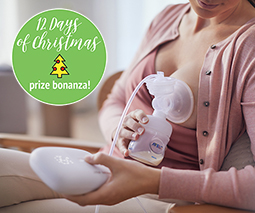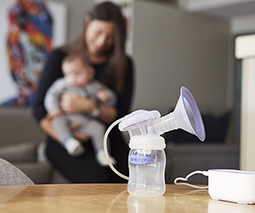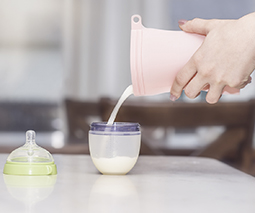When breastfeeding hurts: How to feed without feeling pain

The expectation of breastfeeding can be very far from reality. For starters, new mums are rarely prepared for the sensations that feeding their baby can spark. They also might not anticipate that breastfeeding can cause discomfort and even pain.
Listen to Jo Ryan on Feed Play Love:
Jo Ryan is a sleep consultant with Baby Bliss who has been helping mothers for over 20 years. She explains why breastfeeding can hurt, and ways you can get around it.
There’s a perception that breastfeeding comes naturally, but for most women, that’s just not the case.
Breastfeeding beginners
“Breastfeeding is a learned thing,” Jo says. “For some people, it does happen pretty quickly but that is actually a very small percentage of women. Mothers and babies have to learn how to breastfeed. They need to find their rhythm and sometimes that takes a little bit of time.”
Jo says that painful breastfeeding can be a part of this steep learning curve.
“[It] can be the result of a number of things,” she explained. “You have sensitive nipples and you’ve got this baby on them all the time. Your skin gets a bit sore – and that’s a pretty normal thing when you first start breastfeeding – but it can also hurt if you’re not actually in the right position.”
“If the baby’s not positioned properly on the nipple, sometimes that can push the nipple up against the roof of their mouth or they can suck on it in a way that’s uncomfortable. So there are numerous things that might be going on.”

Babies seriously suck
The other thing Jo pointed out is that when babies feed, they suck very strongly.
“They suck your nipple all the way back to the back of their palate,” she explained. “For some women, it takes a little bit of time [to get used to this]. The nipples have to toughen up a little bit.”
Jo says that breastfeeding will hopefully become easier and less uncomfortable in time.
“You just have to kind of get through it and hopefully it doesn’t take too long,” she said noting that constant pain requires expert support.
“If breastfeeding is painful and it’s going on and on and on, then something might be wrong,” Jo explained. “The attachment might be wrong, the way the baby’s sucking might [be the issue], they may have a tongue tie, or there might be something else going on.”
So where should women turn if breastfeeding is causing them pain?
“The first port of call would be the maternal and child health nurse. They’re often really good sources of information and they can just check that everything is okay in terms of latching and that sort of thing,” Jo advised.
“If you can manage to get yourself a lactation consultant, there’s a lot of very skilled and experienced women out there who can come to your home, to just spend some time and check that everything is okay.”

When is enough, enough?
“If you’re trying to breastfeed and it’s not working, you’re in a really vulnerable place. You’ve got a new baby, you’re sleep deprived and it’s going to make your mental health worse,” Jo said.
If it’s a constant battle and baby is hungry and mum is exhausted – and expert advice is simply not helping, Jo says it’s important to balance everyone’s wellbeing. Sometimes formula can be the best alternative.
“The best thing is for the mother to look after herself so that she can be there for her baby, and not sobbing every time she puts him on the boob,” Jo advised. “Your baby needs to be fed. You know that’s the bottom line.”
Find more great stories and expert advice in the Feed Play Love podcast. Available in Apple Podcasts, Google Podcasts, Spotify or wherever you listen.









